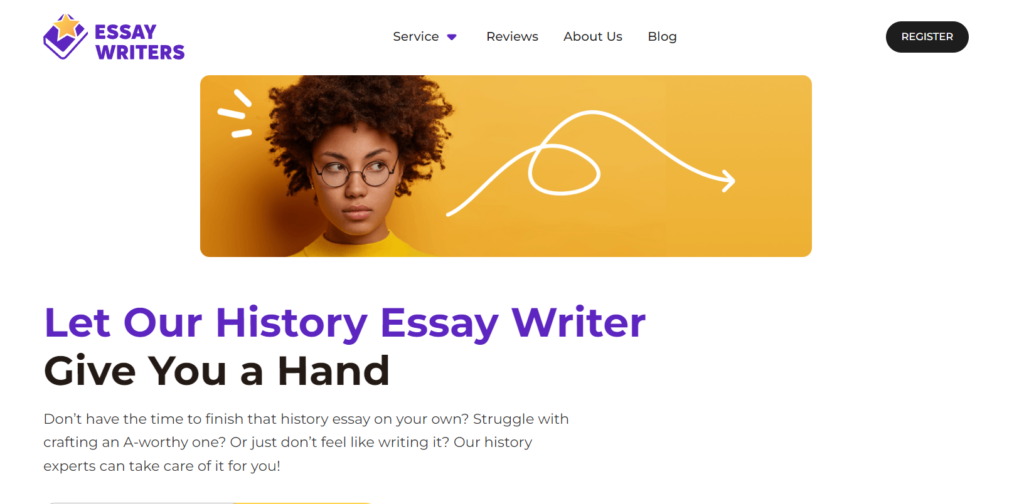The History Essay Writers have played a pivotal role in shaping our understanding of the past. Through their meticulous research, compelling storytelling, and insightful analysis, these essayists have left an indelible mark on the world of historical literature. In this article, we embark on a journey through the annals of history essay writers, exploring the remarkable works of prominent authors and the profound impact of their narratives. We will also shed light on the invaluable services provided by essay writing services, emphasizing the importance of academic help in today’s educational landscape.
The Art of Historical Essay Writing
Historical essays are a unique blend of rigorous scholarship and creative expression. These essays go beyond the mere recitation of facts; they weave a narrative that brings history to life. As Robert D. Kaplan aptly stated, “A good historical essay should transport the reader back in time, allowing them to see, feel, and understand the past.” This is the essence of history essay writing – to bridge the temporal gap and connect readers with history on a visceral level.
Pioneers of Historical Essay Writing
- Michel de Montaigne and the Birth of the Essay Form
Michel de Montaigne, a 16th-century French philosopher, is often credited with pioneering the essay form. His collection of essays, “Essais,” is a testament to the power of introspection and personal reflection in historical writing. Montaigne’s essays were not dry historical accounts but intimate journeys into the human condition. As he once said, “I quote others only to better express myself.” Montaigne’s unique approach to history set the stage for future essayists to infuse their work with personal perspectives. - Edward Gibbon’s “The Decline and Fall of the Roman Empire”
Edward Gibbon, an 18th-century English historian, stands as one of history essay writing’s most influential figures. His magnum opus, “The Decline and Fall of the Roman Empire,” is a masterpiece of historical analysis and narrative prowess. Gibbon’s meticulous research and critical examination of historical sources set new standards for historical writing. His work remains a touchstone for historians and essayists alike, emphasizing the importance of rigorous research in crafting compelling narratives.
Modern Masters of Historical Essays
- Joan Didion: Exploring American History
Joan Didion, a contemporary essayist, has left an indelible mark on the genre of historical essays. Her work, such as “The White Album,” offers a unique perspective on American history, blending personal experiences with historical events. Didion’s ability to dissect the tumultuous 1960s through a personal lens serves as a testament to the power of individual narratives in historical writing. As she once wrote, “We tell ourselves stories in order to live,” highlighting the role of storytelling in understanding history. - Yuval Noah Harari: Bridging History and Futurism
Yuval Noah Harari, known for his groundbreaking book “Sapiens: A Brief History of Humankind,” represents the intersection of history and futurism. His work transcends traditional historical narratives, offering a global perspective on the history of Homo sapiens. Harari’s ability to connect the past with future possibilities challenges readers to think critically about the course of history. As he states, “The real difference between us and chimpanzees is the mythical glue that binds together large numbers of individuals, families, and groups.”
Themes and Techniques in Historical Essays
Historical essayists often explore common themes to engage readers and illuminate the past:
- Memory and Identity: History essayists frequently delve into the ways in which historical events shape collective memory and individual identity. The words of Elie Wiesel resonate: “Without memory, there is no culture. Without memory, there would be no civilization, no society, no future.”
- The Role of Power and Ideology: Many historical essays scrutinize the influence of power and ideology on the course of history. As historian Howard Zinn asserted, “Historically, the most terrible things—war, genocide, and slavery—have resulted not from disobedience, but from obedience.”
Historical essayists employ various techniques to engage their audience:
- Anecdotes and Personal Narratives: Personal stories and anecdotes add a human touch to historical essays, making distant events relatable. As Maya Angelou wisely noted, “We all should know that diversity makes for a rich tapestry, and we must understand that all the threads of the tapestry are equal in value no matter their color.”
- Interdisciplinary Approaches: History essayists often draw from multiple disciplines, such as anthropology, sociology, and psychology, to offer a comprehensive understanding of historical events. In the words of E.O. Wilson, “You are capable of more than you know. Choose a goal that seems right for you and strive to be the best, however hard the path.”
The Influence of Historical Essays on Society
The impact of historical essays extends far beyond the realm of academia:
- Shaping Public Perception: Historical essays shape public perception by providing alternative narratives and perspectives on historical events. In the words of Arthur Schlesinger Jr., “Science and literature give us not only great ideas but also great works of art and historical narratives.”
- Challenging and Revising Historical Narratives: Historians and essayists have played a pivotal role in challenging established historical narratives and promoting critical thinking. As George Orwell asserted, “The most effective way to destroy people is to deny and obliterate their own understanding of their history.”
- Leading to Social Change: Historical essays have the power to spark social change by shedding light on past injustices and inspiring action. Martin Luther King Jr. famously said, “The arc of the moral universe is long, but it bends toward justice.”
Challenges and Controversies in Historical Essay Writing
Historical essayists grapple with ethical dilemmas and controversies:
- Ethical Dilemmas in Interpreting History: The interpretation of history can be ethically complex, especially when confronting morally fraught events. As historian Barbara Tuchman noted, “Books are the carriers of civilization. Without books, history is silent, literature dumb, science crippled, thought and speculation at a standstill.”
- Controversies Surrounding Historical Revisionism: Historical revisionism, when done with ulterior motives, can distort the truth. As Winston Churchill famously stated, “History will be kind to me, for I intend to write it.”
- Role in Shaping Political Discourse: Historical essays can inadvertently influence political discourse, emphasizing the responsibility of historians to remain impartial. As Carl Sagan wisely advised, “Science is a way of thinking much more than it is a body of knowledge.”
Using EssayWriters to write Historical Essay

What is EssayWriters?
EssayWriters.org, often referred to as “EssayWriters,” is a reputable and professional online academic writing service. They specialize in providing expert assistance to students and researchers in various fields, including history. With a team of skilled writers, editors, and researchers, EssayWriters.org is committed to delivering high-quality, custom-written essays and research papers tailored to your specific needs.
How EssayWriters Works
EssayWriters.org operates on a user-friendly platform designed to simplify the process of obtaining academic help. To get started, you need to visit their website, essaywriters.org, and follow these steps:
Place an Order: Provide detailed instructions for your historical essay, including the topic, length, formatting style, and any specific guidelines you want the writer to follow.
Choose a Writer: EssayWriters.org allows you to browse through a database of experienced writers and select the one you believe is the best fit for your project. You can review their profiles, qualifications, and ratings to make an informed decision.
Collaborate with Your Writer: Once you’ve chosen a writer, you can communicate with them directly through the platform. This open channel of communication enables you to share additional insights, ask questions, and stay updated on the progress of your essay.
Receive Your Completed Essay: After your chosen writer has completed the essay, it will undergo a thorough quality check to ensure it meets your requirements. You’ll then receive the final document, ready for submission.
Why You Need to Hire EssayWriters for Your Historical Essays
There are compelling reasons to consider hiring EssayWriters.org for your historical essays:
- Expertise in History: EssayWriters.org has a team of writers with expertise in history and related fields. They understand the nuances of historical research, ensuring that your essay is well-researched and historically accurate.
- Customized Content: Each essay produced by EssayWriters is custom-written to your specifications. This means you receive a unique, plagiarism-free essay tailored to your specific historical topic and requirements.
- Time Savings: Writing historical essays can be time-consuming, especially when juggling other academic responsibilities. Hiring EssayWriters.org allows you to save time and focus on other important tasks while experts handle your essay.
- Quality Assurance: EssayWriters.org places a strong emphasis on quality. Every essay undergoes a rigorous editing and proofreading process to ensure it meets high academic standards.
- Meeting Deadlines: Whether you have a tight deadline or need an essay delivered over an extended period, EssayWriters.org can accommodate your timeline, helping you submit your work on time.
Incorporating the services of EssayWriters.org into your historical essay-writing process can be a strategic choice, offering you the expertise, convenience, and peace of mind needed to excel in your academic pursuits. Trust History Essay Writers like EssayWriters.org to support your journey of exploring and writing about the past with precision and excellence.
The Future of Historical Essays
The genre of historical essays continues to evolve:
- Evolving Trends: Historical essays are adapting to contemporary mediums, such as podcasts and digital platforms, to reach wider audiences. As Marshall McLuhan predicted, “The medium is the message.”
- Technology’s Impact: Technology has expanded access to historical research materials, offering essayists new tools and resources. As Steve Jobs once said, “The people who are crazy enough to think they can change the world are the ones who do.”
- Enduring Relevance: Despite technological advances, the enduring relevance of historical essays lies in their ability to humanize the past and foster critical thinking. In the words of Carl Jung, “Who looks outside, dreams; who looks inside, awakes.”
To sum up
In conclusion, History Essay Writers have left an indelible mark on our understanding of the past, weaving narratives that transport us to different eras and illuminate the human experience. Their contributions, both historical and contemporary, continue to shape how we perceive the world’s events. Additionally, history essay writing services and academic help have become invaluable resources for students seeking guidance in their essay-writing endeavors.
We encourage readers to embrace the power of historical essays, recognizing that these narratives offer a window into the past like no other. As you embark on your own essay-writing journey, remember the words of George Santayana: “Those who cannot remember the past are condemned to repeat it.” Let history essayists be your guides in navigating the complexities of our shared human history.




Leave a Reply